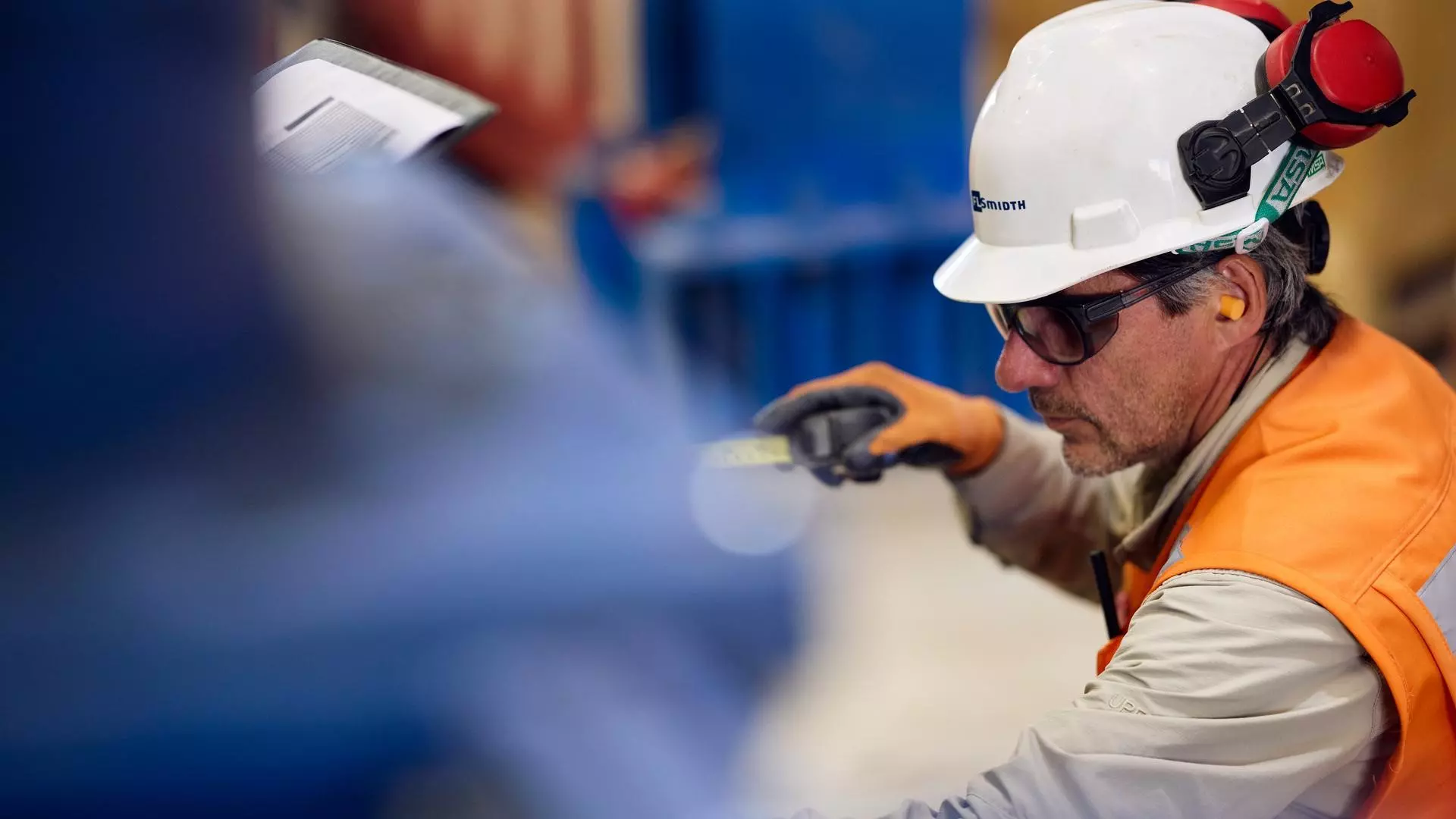As a technology leader in the mining and cement industries, we aim to enable more sustainable business practices across the industry value chains.
Our approach is based on materiality
Sustainability is a core component of our company's strategy. We focus on the two main areas where we currently have the greatest impact: the sustainability performance of our customers and our own operations.

Zero emissions from cement and mining by 2030. That is the aim of our sustainability programme, MissionZero.
The impact of mining and cement on global greenhouse gas (GHG) emissions provides significant business opportunities.
Discover more about MissionZero →
Rising to the challenge
Mining and cement impact us all
The road to a greener future is paved with cement and minerals. Growing populations need cement for housing and infrastructure, and the move to sustainable energy and electric vehicles requires mining of excessive minerals. Increased purchasing power also leads to more consumption of electricity and electronic goods.
Combined, minerals and cement production accounts for approximately 10% of all CO2 emissions. To align with the goals of the 2015 Paris Agreement and contribute to a more sustainable future for coming generations, it is essential that we rise to the challenge and advance more sustainable production practices in mining and cement.
By 2030:
more people living in urban areas
Taking responsibility for our business activities
Through our environment, social and governance (ESG) efforts, we address the impact of our own operations, and those of our suppliers, across the value chain. We set measurable targets and evaluate our performance across several areas.
Environmental impact
We measure our scope 1, 2 and 3 greenhouse gas (GHG) emissions in accordance with the Science Based Targets initiative, as well as monitoring our energy consumption, water usage and waste management, as we aim to reduce our environmental impact and promote sustainable practices in the organisation.
We aim to achieve zero emissions by 2030 as we continually reduce the environmental impact of our own operations.
Social impact
We consider the impact of our operations on colleagues, suppliers and other key stakeholders. This includes significant focus on health and safety. We measure our performance continually in key safety parameters as we aim for our 2030 goal of Zero Harm.
For colleagues at FLSmidth, we provide the opportunity to grow in an international working environment, and we have many ongoing activities and initiatives that encourage and improve diversity, equity and inclusion across the organisation. This includes in our training and development programmes, which also embrace leadership skills and professional development.
One of our key social targets is to have 25% of managerial positions and 25% of all positions filled by women by 2030. We measure our performance continually and report on it every year in our Sustainability Report.
Governance impact
Our leadership and management practices set the standards for the way we do business. Through strong compliance practices, we are committed to transparency and ethical conduct to ensure that our operations are aligned with our values and the interests of our stakeholders.
We are taking significant steps to strengthen our work within human rights, based on the OECD guidelines and the UN Guiding Principles framework. We are strengthening due diligence procedures, providing more human rights training to colleagues, and conducting onsite human rights assessments. We continually identify salient issues and develop action plans to address them.
Our commitment to the Science Based Targets initiative guides our work within the supply chain in relation to climate action. We aim to achieve 30% of our supplier spend with suppliers who have set their own science-based targets by 2025. Our supplier due diligence processes are based on the OECD Due Diligence Guidance for Responsible Business Conduct.
Our updated Supplier Code of Conduct is available in English and Spanish →

2023 Sustainability report
A sustainable future
Society depends on the metals, minerals and infrastructure that will enable the green transition. As a key sustainability partner for our customers, we have a responsibility to drive progress.